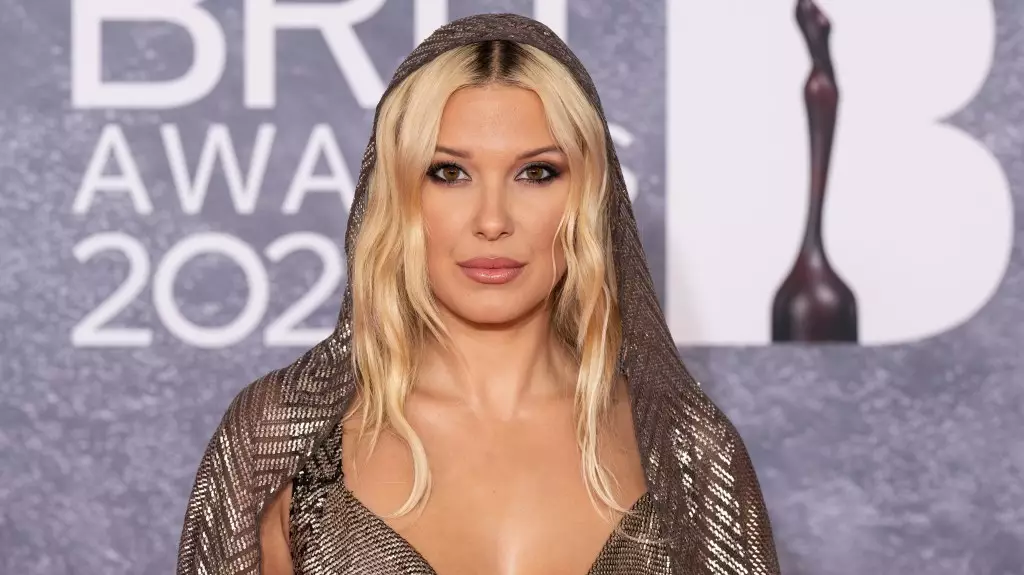In a world hyper-fixated on celebrity culture, Millie Bobby Brown has emerged as a powerful voice speaking out against the damaging impact of media scrutiny on young women. Recently, she took to Instagram to denounce the media’s relentless criticism of her changing appearance and highlight a painful truth: society often is not ready for women to grow up at their own pace. From the moment she stepped onto the scene as Eleven in “Stranger Things,” Millie has been scrutinized like few others. Yet, she insists that what has happened is not a mere observation; it is a form of bullying. Instead of celebrating her evolution, the media chooses to dissect her, passing judgment as if it were their right.
This behavior raises critical questions about societal attitudes and the disturbing norms surrounding beauty standards. What does it say about us when adult publications prioritize sensationalism over the well-being of young women? The unsettling reality is that scrutiny often transforms a young individual’s journey into a source of entertainment for a disillusioned audience.
Millie’s point about being viewed as “frozen in time” is particularly telling. How often do we hear of public figures who are expected to maintain a certain look, regardless of the natural process of aging or personal growth? It reflects a broader societal issue—one that places unattainable standards on young women in the public eye. The notion that she should retain the same childlike appearance as in Season 1 of “Stranger Things” is not only unrealistic but profoundly unjust. The expectation breeds an environment that fosters criticism rather than understanding.
It is painfully ironic that many critics, including women, contribute to this harsh narrative, undermining the very ideals of solidarity they often profess to uphold. As Millie aptly noted, the media’s fixation on tearing down instead of building up is a toxic trend that permeates our culture, reflecting a pervasive misogyny that suffocates rather than liberates.
When Millie highlighted specific derogatory headlines aimed at her, it painted a vivid picture of a culture steeped in cruel commentary rather than constructive dialogue. The shift in tone once she reached adulthood illustrates a horrifying reality—the public sentiment turns from protective to predatory. The boundary between journalism and cruelty has been blurred; what should be informative reporting often masquerades as a vile pastime. The reflection of one’s worth through public lenses is deeply problematic, a notion that drives home her call for improvement.
As she pointed out, it is too easy to lash out than to extend a compliment. In a world where negativity is often perceived as “real talk,” it’s no wonder that “likes” and shares have become the new currency of societal approval. Millie’s insistence that we must do better not only resonates with her peers but should echo throughout our communities.
Millie’s account as a young woman in her position makes it glaringly evident that the burdens of expectation and scrutiny can be overwhelming. The celebrity landscape is littered with stories of young women who fall prey to societal pressures leading to ramifications affecting their mental health. Discussions surrounding personal growth and change should be encouraged, not feared. Media and public discourse must serve to celebrate these evolutions instead of vilifying them.
It is a disheartening reality that many young women continue to grapple with this challenging narrative, facing the daunting task of defining their worth in an increasingly critical society. For Millie to refuse to apologize for growing up is a liberating act, sending ripples of empowerment to countless other young women navigating similar waters.
Ultimately, Millie Bobby Brown’s bold stand against media bullying serves as a rallying cry not just for herself but for all young women subjected to unwarranted criticism. In advocating for a shift away from harmful judgments, she underscores the need for society to redefine what beauty and value mean. It is time for a revolution in the way we perceive the growth of young women in the public eye, moving from a culture of condemnation to one of praise and support, challenging unjust norms to create a healthier environment for future generations.


Leave a Reply